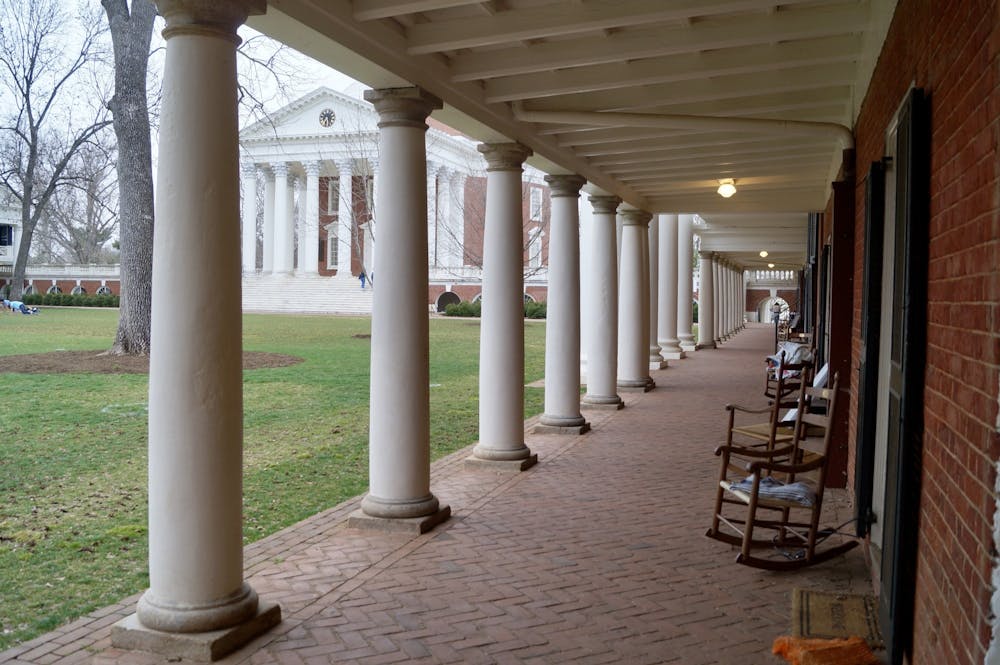In an interview reflecting on the five-year anniversary of the “Unite the Right” rally and progress made since, University President Jim Ryan emphasized the importance of preparing students to be citizen leaders. For Ryan, citizen leadership requires exposure to local history, awareness of challenges to democracy and preparation to offer solutions to those faults. We subscribe to this mission — this cultivation of the next generation of student leaders. Still, in order to truly create citizen leaders, we believe the University must educate its students on University and Charlottesville’s history and create a physical environment that reflects our commitment to equality and our disavowal of white supremacy.
Citizen leadership requires taking accountability. To be clear, we vehemently oppose the previous editorials written shortly before and shortly after the events of Aug. 11 and 12 that ignored institutionalized racism and misdirected blame to inappropriate bodies. In 2017, The Cavalier Daily was part of the larger media system that exacerbated the harmful effects of the “Unite the Right” rally. It would be hypocritical to write this editorial today without recognizing these failures and rededicating ourselves to our mission statement of performing a public service.
The University has a responsibility too, however. It is crucial that the University educate its students on local history so students can become citizen leaders who create a positive impact on that community, rather than robotically cycling in and out of Charlottesville every four years and treating this city like some kind of playground. While a variety of non-mandatory classes that touch on the University and Charlottesville’s histories currently exist, these courses do not ensure that the entire student body is educated on Charlottesville, the University or the unique relationship that exists between the two. These classes cannot continue to be the sole source of formal University curricula on local history, should we truly wish to cultivate the next generation of citizen leaders. Neither should the University continue to rely on unpaid student organizers — like the History of Enslaved African American Laborers and University Guide Service tours — to educate students on its behalf.
It is our belief that future education about Charlottesville and University history should be two things — mandatory and continuous. All students should be required to learn about Charlottesville and the University’s racist roots and more recent history, including the "Unite the Right" rally. Educating students on these topics should continue over the course of their four years at the University. However, it is also crucial that such programming is only the starting point of education. Whether it be moderated conversations or interactive and interpersonal assignments, there must be room to process this information, actively listen and speak.
Historically, the University has contributed to the displacement, erasure and discrimination of Charlottesville communities, especially its Black residents. Individual students and alumni replicate this harm too. Jason Kessler and Richard Spencer — white supremacists and organizers of the deadly “Unite the Right” rally — are both alumni. The University also educated Paul McIntire — the namesake of the McIntire School of Commerce, McIntire Department of Art and McIntire Amphitheater — who funded the construction of the Robert E. Lee and Thomas “Stonewall” Jackson statues. The Jackson statue could only exist after largely Black owned businesses and residences were forcefully displaced from the area where it was constructed. And of course, these two statues were the same whose pending removal played a significant role in inciting the “Unite the Right” rally itself. We cannot ignore the reality that the University has always played a significant role in the lives of Charlottesville residents.
Moreover, we reject how the University’s physical environment — one that glorifies racists, slaveholders and eugenicists with statues and buildings named in their honor — upholds an enduring culture of white supremacy. There is a reason why Charlottesville’s local Klu Klux Klan Chapter hosted its inauguration ceremony at Jefferson’s Monticello tomb. There is a reason why white supremacists gathered with torches around Jefferson’s statue on the north side of the Rotunda. There is a reason why they felt comfortable marching through Grounds. Our physical environment — from statues to building names to Jefferson’s overwhelming presence — exalts people who held the same beliefs as the repugnant white supremacists in attendance at the “Unite the Right” rally. These buildings must be renamed and memorials removed.
While the University has a long way to go in creating the learning and physical environment that would truly enable its students to become citizen leaders, we would be remiss if we did not acknowledge the massive, caring community that came together in the aftermath of the “Unite the Right” rally. Students hosted discussions, peaceful protests, and opportunities for reflection following the events of Aug. 11 and 12. Students were at the forefront of emotionally supporting one another after the violence and standing for change — the Black Student Alliance, for one, released a list of demands in the aftermath, many of which still remain unmet by administration. Throughout the summer of 2017, while the University community continued to be failed by those who should have protected it — the police, administration, the City and state — the University community ran towards danger and protected and comforted itself. We are proud to be a part of this community. Five years after the events of Aug. 11 and 12, 2017, we commemorate this attack on our city, but we are also hopeful for the future and optimistic that this generation of citizen leaders will continue to blaze the path for change — as they have always done.
The Cavalier Daily Editorial Board is composed of the Executive Editor, the Editor-in-Chief, the two Opinion Editors, their Senior Associate and an Opinion Columnist. The board can be reached at eb@cavalierdaily.com.







